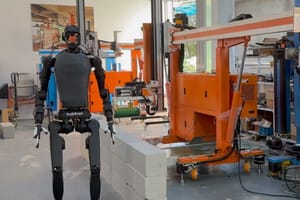Apple's Vision Pro headset has taken a significant leap forward with its latest integration, allowing users to control it using only their thoughts. This breakthrough is facilitated by Synchron's brain-computer interface (BCI) technology, providing a new level of accessibility for individuals with severe physical limitations.
Synchron announced that the Apple Vision Pro has been successfully operated by a patient using direct brain control via Synchron's BCI technology. Mark, a 64-year-old man with amyotrophic lateral sclerosis (ALS), showcased his capability by using his mind to control the Vision Pro to play Solitaire, watch Apple TV, and send text messages. This development is particularly impactful for users like Mark who have lost the ability to use their hands.
Mark has been practicing various skills with his BCI twice a week since its implantation in August 2023. He described the experience of using the BCI with the Vision Pro as similar to using it with his iPhone, iPad, and computer. Synchron's BCI technology enables individuals to control digital devices through motor intent signals detected from the brain, transmitted wirelessly to external devices. This technology bypasses the need for hand gestures or speech, which are typically required to operate the Vision Pro.
Tom Oxley, CEO and Founder of Synchron, emphasized the importance of this technology:
“BCI is a platform to re-connect people with injury or disease back to the fast-moving consumer technology landscape. Vision Pro is a powerful system, but it relies on the use of hand gestures to exert control over the UI. We are sending control signals directly from the brain to replace the need for hand gestures. We are moving towards a new Bluetooth standard for Human Computer Interactions that do not require touch or speech. This is a critical unmet need for millions of people with paralysis.”
Synchron is preparing for larger-scale clinical studies to further develop and expand the reach of its BCI technology. The company has already implanted its BCI in six patients in the United States and four in Australia and is seeking approval from the U.S. Food and Drug Administration to commercialize its technology.
News Source: MacRumors









